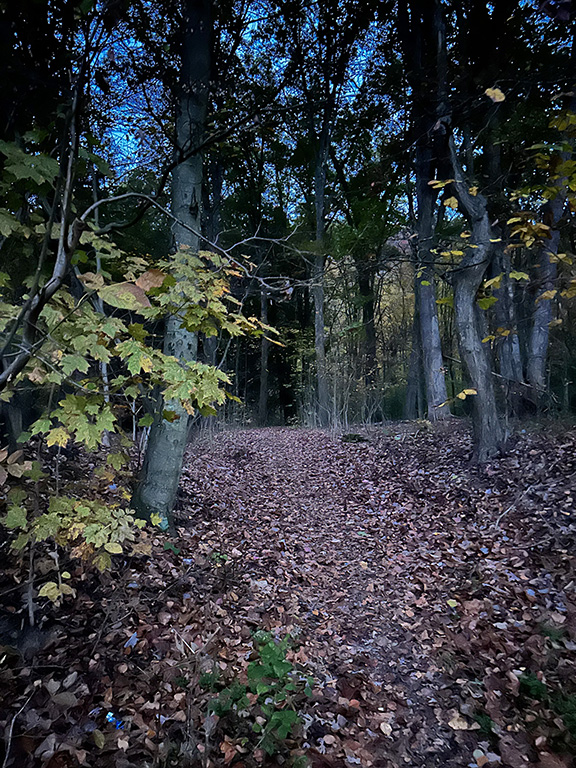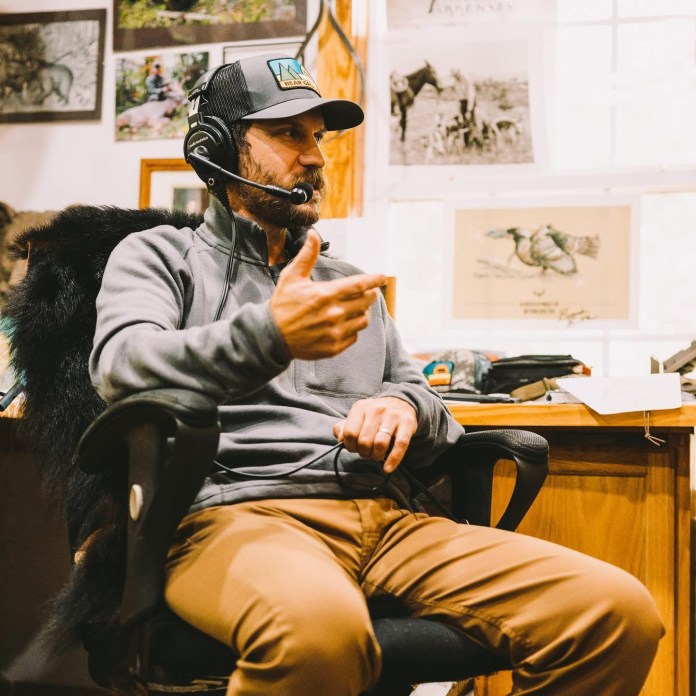DONEGAL, Pennsylvania — It is 6:14 p.m. on a Thursday. You’re hiking along the Forbes Trail, nestled deep in the Appalachian Mountains somewhere along the Westmoreland-Somerset County lines. It is 19 minutes until sunset, and you have just over a mile to go, mostly uphill, before you are out of the deep forest and in the clearing.
The mountain range, which stretches from Maine to Georgia and is documented to be one of the oldest in the country, shares characteristics across the approximately 420 counties. It is rugged, often mist-covered with deep hollers and rugged peaks that cling to a rich tapestry of folklore — folklore that is a mix of generational stories and superstitions that came from the Scots-Irish, a variety of native American tribes, and African Americans who have carved out often isolated lives in this region.
BELTWAY CONFIDENTIAL: NH REPUBLICANS ARE CLAMORING TO DITCH SCOTT BROWN
Your heart starts to race as the clearing gets within reach because if you grew up in any part of Appalachia, your elders have warned that if you find yourself in the woods after dark, that is not a good thing. And no matter what, never, ever, whistle.
The legend goes, the folklore varying in each little community in the thousands of miles that make up the Appalachian Mountains region, that you should never whistle after the sun sets in the woods or you will draw supernatural attention from someone or something you do not want to encounter.

Whistling at night in the woods is a tale that has been passed down for generations, usually by an elder with a warning about someone they knew who never made it out of the woods. These tales have caused the young and the old to avoid waking ancient spirits. It is also advised never to respond or run if one hears a whistle, but instead to ignore it, state your intentions out loud, and leave the area calmly.
Everybody loves a good ghost story, whether you believe in them or not. Because of their age and isolation, the Appalachian Mountains have had plenty of them passed along through the ages — stories like the Appalachian Whistle that endured for centuries. It is one of many folk tales prevalent in American culture that go beyond the boundaries of the people who call this mountain range home.
Clay Newcomb is a seventh-generation Arkansan, storyteller, and the host of Bear Grease, a widely popular podcast filled with rich recalls of communities and traditions that is part of the Meateater podcast platform. A prolific publisher, writer, and cinematographer, he joined Meateater in 2019 and is uniquely connected to the art of storytelling and folklore. He focuses on forgotten history that is highly relevant to the people who remain connected to their roots.
Newcomb said his favorite local legend is sightings of the legendary black panther in Arkansas.
“You could go any direction a mile, 10 miles, 100 miles from my house and just knock on a door. And I’d say there’s a 60% chance the person that lives there will have had an encounter with a black panther,” he said.
What is so bizarre about that, Newcomb said, is that there are no black panthers in this part of the world, nor have there ever been.

“I don’t think that’s unique to Arkansas. I think it’s unique to the Southeast, particularly, and it’s absolutely become folklore that has become so real to people that you can’t even argue with people because they are different gradient levels of belief in it,” he said
“You’d be amazed at just how many people who are just 100% convinced that they’ve seen a black panther,” said Newcomb. “Yet the biology side of it is, the only big cat native to the southeast is a tan lion.”
Just as many people have told the tale that they had a friend who had a friend who whistled in the woods after dark in Appalachia on a dare and was never seen again, or had an uncle or a cousin who swore they heard someone whistle while they were walking in the dark in the woods, Newcomb said folklore is often born out of cognitive bias that takes on a life of its own.
“And because Americans for generations have been prolific storytellers, the tale extends rather than contracts,” he said.
“Cognitive bias is really an interesting phenomenon in American storytelling. Think of it in these terms: If your father raised you up [telling you] that there were black panthers and he told you there [were] from the time you were a child, there is a high likelihood that you will see one in your life,” he said.
That’s how folklore passes through generations.
Newcomb said something about this time of year, after the harvest, as the days grow longer, that draws us toward stories and folklore with a supernatural dimension.
“It goes back to our roots as an agrarian society, a time of harvest, which we are still culturally attached to. So in the fall, we might be thinking about those things and telling those stories when the days are shorter, you’re home quicker, you’re in the house, you’re sitting around in the fire, you’re probably celebrating your wins and losses on your harvest and there’s something nostalgic about it that we love to remain attached to,” he said.

He’s not wrong, and we’ve seen that not just around the fall season but year-round. It is part of why podcasting has grown so exponentially in the past decade: people have grown impatient with quick 4-minute legacy news stories to explain something and are drawn toward something longer and more meaningful, something that doesn’t just inform us but also entertains us.
In Bear Grease, Newcomb draws in those unfamiliar with historical stories and interviews about the ways frontier America is still relevant today, beginning with the moniker of his podcast, which is named after the rendered fat of a bear, which is then turned into a liquid oil that can be used for a multitude of things and was the fuel of the American frontier.
The black bear, the second most widely distributed big game mammal in North America, had more tallow than any other animal. Before the modern convenience of widespread fossil fuels, animal oil was an essential component of survival for frontier families. The podcast brings so much of American history and life; it is hard to stop listening.
Newcomb says that success in life comes from being able to connect to the values of your culture: “The most ancient possible way to connect people to those values is through an oral story. It’s not even the written word. It’s not a video program. It is people sitting around a fire telling a story. It’s primitive, and it is deep when a father tells a story to his sons at a hunting camp. That’s what I feel like we’re trying to tap into. When I tell a story, it is just a full-throttle story. And there’s just so much you learn from a story. You learn the values of the storyteller,” he said.
IN FOCUS: THE FRIENDS OF ZOHRAN MAMDANI
American stories carry a value system; they always do. It is parabolic, and there’s a lot of hidden meaning inside stories. The ones that persist long enough to become folklore sometimes carry the values of the people who interpreted that story for the first time.
There is a reason you are told not to whistle in the woods after dark: It is a tale that was likely a warning to young people that nothing good ever happens in the woods after dark.
